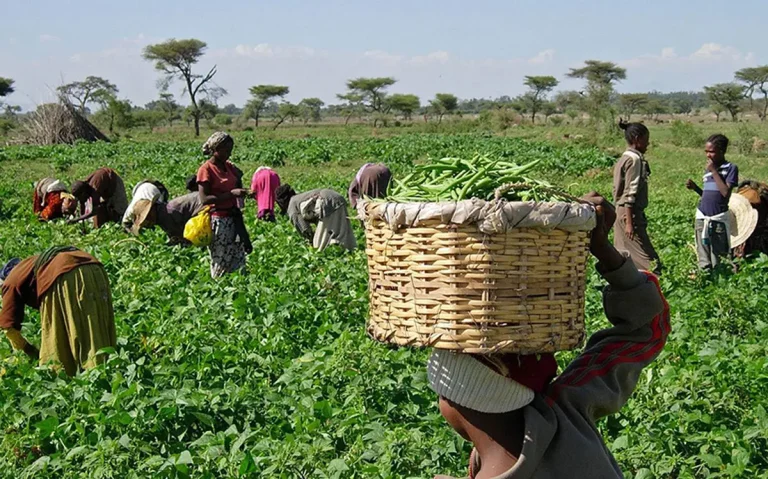The Federal Government has introduced new incentives to attract investment in agriculture and strengthen food security under President Bola Tinubu’s Renewed Hope Agenda. The programme, which targets $3.14 billion in investments, is designed to expand access to credit and create about 21 million rural jobs within Nigeria’s agricultural value chain.
Speaking at the Food and Agriculture Organization (FAO) National and Sub-regional Hand-in-Hand Investment Forum in Abuja, Vice President Kashim Shettima said the measures will drive agricultural growth and help the nation achieve food security. “Nothing unites humanity like hunger. It shows our weakness and the shared fragility of life. Food is not just about survival; it is about global security,” he said.
The new incentives include a single-window platform for land registration, stronger agricultural credit systems, large-scale mechanization, and strategic irrigation projects. Shettima stressed that investors must have easy access to land and resources, farmers need mechanization to boost productivity, and the credit system must be improved to channel funds to the right places.
Under the 2021–2025 National Development Plan, the government aims to lift 35 million Nigerians out of poverty, create 21 million jobs in rural areas, and secure food and nutrition sufficiency. Shettima also highlighted that investing in irrigation could triple yields, reduce dependence on seasonal farming, and build resilience against climate shocks.
The new plan is bold and commendable, as it seeks to unlock Nigeria’s vast agricultural potential, which has remained underused for decades due to heavy reliance on oil. At independence, agriculture was the backbone of the economy and the biggest employer of labour. Each region thrived on its own produce: groundnuts in the North, cocoa in the West, oil palm in the East, and rubber in the Mid-West. Even during the oil boom, agriculture continued to employ the largest share of workers despite being neglected.
For the new programme to succeed, however, governors, local government chairmen, and farmers themselves must fully support it. History has shown that Nigeria has never lacked good agricultural plans; the challenge has always been weak implementation. Many past initiatives failed because of poor political will, corruption, inadequate funding, lack of stakeholder engagement, and diversion of resources away from real farmers.
Examples of failed projects include the National Accelerated Food Production Programme (1972–1973), Operation Feed the Nation (1976–1980), the Green Revolution Programme (1981–1983), the Go Back to Land Programme (1983–1985), and the Anchor Borrowers’ Programme under the Buhari administration. Despite these efforts, Nigeria still relies heavily on food imports.
Food import bills rose by 16 per cent in 2024 to \$2.5 billion. Insecurity has worsened the problem, especially in North-Central Nigeria where armed herdsmen disrupt farming activities. This situation contributed to Nigeria being listed in June 2025 as a hunger hotspot by the FAO and the World Food Programme, alongside countries like DR Congo, Burkina Faso, Chad, and Somalia.
Nigeria currently depends on imports from Brazil, Germany, Ireland, the United States, China, and even war-torn Ukraine for rice, sugar, and wheat flour. Yet, the country has more than enough arable land and water resources to grow food and develop aquaculture. According to the World Bank, 40.48 per cent of Nigeria’s land was arable in 2022, amounting to about 70.8 million hectares, suitable for crops like maize, cassava, sorghum, yam, beans, millet, and rice.
Still, most Nigerian farmers practice small-scale, traditional farming with hoes and cutlasses, relying on rain-fed agriculture and low-yielding seeds. Land ownership systems and the Land Use Act also make acquiring land for large-scale farming difficult. The recent importation of tractors and other modern farm implements from Belarus and Brazil may help boost mechanization if well utilized.
Above all, insecurity remains the greatest threat to Nigeria’s agriculture. The abduction of 40 people in Zamfara and repeated killings of farmers in different states discourage farming activities. Banditry in Sokoto and other northern states further weakens efforts. Unless the government confronts insecurity and addresses the failures of past agricultural policies, the new initiative may face the same fate as earlier programmes.


